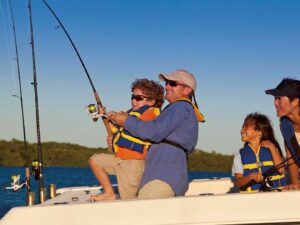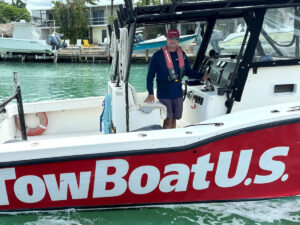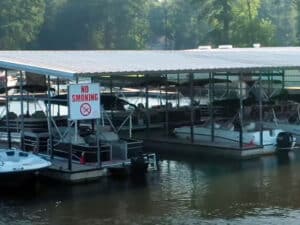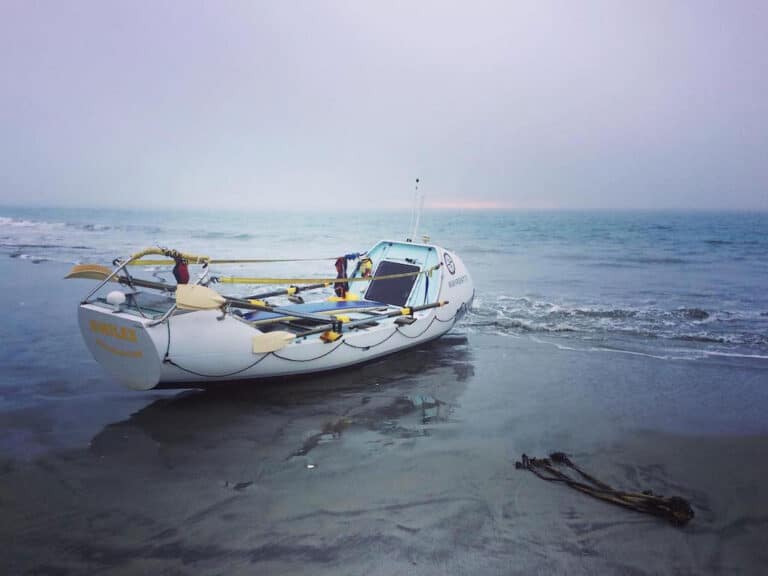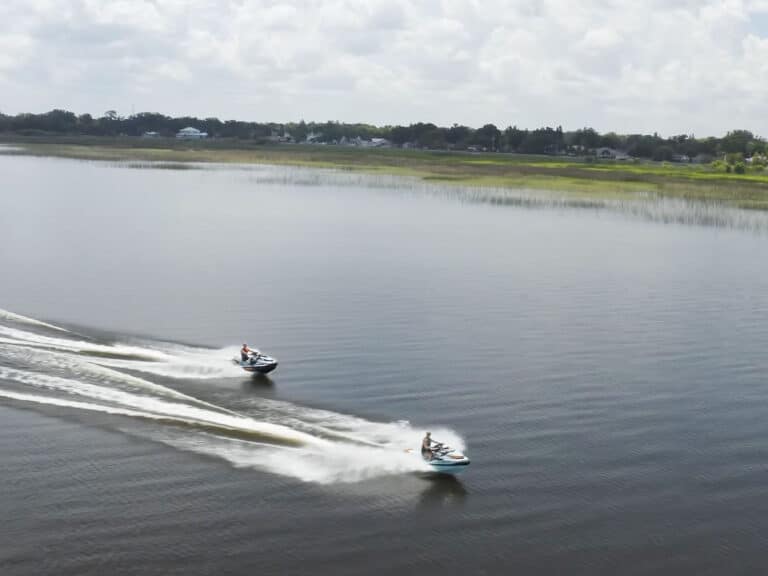
In old Westerns, the nameless drifter is either a nuisance or dangerous villain, but who knows which?
The mystery is just as deep when the that nameless drifter is a kayak, canoe, stand-up paddleboard, dinghy or any other small craft found bobbing empty on the water. Few states require human-powered vessels to be registered, which means that first responders can’t just call the number on file to make sure the vessel’s owner is okay. They need to go out looking – now.
Did someone fall out of the errant craft, meaning they’re somewhere out there in desperate need of rescue? Or did it just blow off a dock somewhere? These are the questions the Coast Guard or local marine patrol officers have to ask every time drifting canoe, kayak, SUP, rowboat, or other small craft is discovered.
No educated guess will do. A person’s life could be at stake.
Searches triggered by unmanned adrift vessels are the No. 4 response activity in the Coast Guard nationwide, and each of those operations costs a minimum of about $40,000. Meanwhile, those rescuers are not available should another emergency arise.
Unless, that is, a quick scan of the boat reveals a sticker or decal bearing the owner’s name, phone number, and the number of an alternate contact. That way officials can quickly determine if this drifter is a mere nuisance—lost property to be reunited with its owner—or if it represents real danger. If someone is in dire straits, this information can help rescuers decide where to focus a search.

That was the premise when the U.S. Coast Guard Auxiliary developed its “If Found” sticker program in response to the rapidly increasing number of paddling emergencies and false alarms. Paddlers and others were asked to use a waterproof marker to record their information and then place the sticker on an easily visible interior hull location, covering it with clear, wide packing tape.
Today, bright orange “If Found” stickers are available through local Coast Guard Auxiliary flotillas, United States Power Squadrons offices, kayak and canoe shops and websites, harbormasters, and commercial sources such as Amazon. Or email iffoundsticker@d13cgaux.net and Dean Alexander, a Coast Guard Auxiliarist in Washington, will mail free “If Found” stickers to paddlers anywhere in the United States.
A sticker is the most distinctive, reliable way to provide contact information. But even writing your name and contact information on your paddlecraft with a permanent marker is a huge improvement over an anonymous, empty boat. Some kayak builders are now molding in panels designed for such personalization.
While you’re at it, consider adding your name and contact number to paddles, oars, life jackets and other gear that could get separated from you or the boat and trigger searches.
Add ownership and phone information to your paddlecraft or small un-registered boat. And then make it less necessary by securing your boat when you’re not using it.
Don’t enable that nameless drifter.
The Coast Guard urges the public to do the following three things:
Help us help you find your kayak. Mark It! Take responsibility for your paddle craft by labeling it with an ‘If Found’ sticker. This label allows responders to confirm whether someone is actually in trouble and collect information to help search efforts.
Take responsibility for recovering your paddle craft. Unmanned and adrift kayaks, canoes, dinghies and rowboats often cause hazards to navigation in the waterway and increase the level of risk and fatigue on response crews tasked to find the owners associated with the unmanned paddle craft.
Do your part to prevent false alarms. First responders deployed in search of unmanned paddle craft divert resources away from actual lives in distress.
For more information on paddle craft labeling, contact your local Coast Guard Auxiliary and visit iffoundsticker@d13cgaux.net to get free “If Found” stickers to help label your paddle craft.
This article was updated by Jeff Moag, Water Sports Foundation
The U.S. Coast Guard is asking all boat owners and operators to help reduce fatalities, injuries, property damage, and associated healthcare costs related to recreational boating accidents by taking personal responsibility for their own safety and the safety of their passengers. Essential steps include: wearing a life jacket at all times and requiring passengers to do the same; never boating under the influence (BUI); successfully completing a boating safety course; and getting a Vessel Safety Check (VSC) annually from local U.S. Coast Guard Auxiliary, United States Power Squadrons®, or your state boating agency’s Vessel Examiners. The U.S. Coast Guard reminds all boaters to “Boat Responsibly!” For more tips on boating safety, visit www.uscgboating.org.

